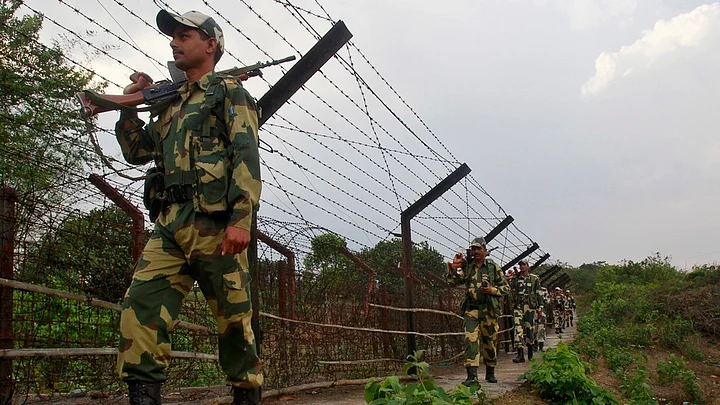On May 27, Tripura revoked the Armed Forces Special Powers Act (AFSPA) from its territory. I write this with some humility and trepidation, because whenever most Indians hear my surname, they immediately ask me if I’m from Tripura and related to the great musicians Sachin and Rahul Deb Burman.
In all humility, I tell them that it’s not like that: the Deb Burmans were descendants of the royal family of Tripura, or Tipperah, as the British called it, and I was a humble descendant from a family of traders from Lahore, who set up shop in Bengal under British rule around 200 years ago, married into Bengali families, and eventually became total Bongs.
Agartala, Tripura’s capital, is one of the cleanest, best-kept cities in India. It has been ruled by communists between 1988 and 1992 and continuously since 1993. It has experienced President’s rule and militancy and come out of all that wearing laurel leaves. How did this miracle happen, especially when its demographics were threatened by so-called Bengali migration in 1947 and between 1965 and 1971?
A Diverse Kingdom
Tripura, a largely diverse kingdom for almost 550 years, was left alone to its whims by the Mughals, who had little control over it and the East India Company, which later took on the mantle as ruler. It was administered by the Manikya kings, descendants of Bengalis, for centuries. One of them, Birchandra, who took over in 1877, was progressive, one of the first to acknowledge the genius of Rabindranath Tagore in his 20s and invite him over and give him every possible support to carry out his artistic work.
So what went wrong? Tripura, a kingdom, joined Indian democracy at the birth of the nation. By that time, through various administrative rules settled by the British, the Tripura kingdom had wide dominance over parts of East Bengal. Suddenly, during Partition, and then through 1969-71 over the tussle over East Pakistan, these rules were forgotten.
There was a vast tide of Bengalis who trooped to Tripura and adjacent Meghalaya. The northern Tripura resident, mostly descended from the Tai-Ahom community which owes its origin to southern China, rebelled.
Tripura, the Multi-Community State
From 1989 to now, we have a surprising story. Tripura was claimed by many communities, not just the hill tribes, but the communists, made sure that these conflicts ever came to the fore.
The 1980s were the worst period, with conflicts between ‘tribals’ or hill people, escalating with the plains Bengalis and the hill ‘tribals’. But the communists managed well. Devoid of caste or regional obsessions, they focussed on relative economic advantage. Bengali peasants were allowed to maximise yield; the hill tribals were allowed to maximise profits from rubber cultivation.
This is how a society is made: gains for all. The French called it a ‘social contract’. That is why Tripura can revoke AFSPA. That is why tiny Tripura can hold on to the Left’s crumbling legacy in the nation.
